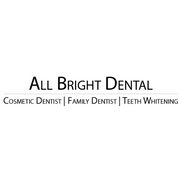
In May 2013, the Academy of Nutrition and Dietetics published a paper on the connection between oral health and proper nutrition. Their findings confirmed the long-held warnings of dentists who emphasized that poor nutrition can lead to long-term gum disease and cavities. Anyone can avoid tooth decay by incorporating proper nutrients into their diet along with a healthy oral care routine. Below are the dietary factors to consider at every stage of life.
How a Balanced Diet Can Protect a Person’s Smile
As a Child
 Nutrition in the first few years of a child’s life is critical to their growth and success going forward. This early period can set the baseline for healthy eating and help them to form eating habits that are crucial for good oral health. According to the Center for Nutrition Policy and Promotion—an agency under the U.S. Department of Agriculture, a balanced diet for people of all ages should include:
Nutrition in the first few years of a child’s life is critical to their growth and success going forward. This early period can set the baseline for healthy eating and help them to form eating habits that are crucial for good oral health. According to the Center for Nutrition Policy and Promotion—an agency under the U.S. Department of Agriculture, a balanced diet for people of all ages should include:
- Plenty of fruits and vegetables—roughly half of one’s daily intake of food.
- Grains—preferably whole grains, like oatmeal, brown rice, and whole wheat bread.
- Dairy—ideally low-fat or fat-free.
- Lean Proteins—like lean beef, seafood, and skinless poultry. Vegetarian alternatives like eggs, beans, and legumes also pack a punch.
It can be challenging for parents not to indulge their kid’s sweet tooth, but choosing the most nutrient-rich foods will help them avoid tooth decay. A way to allow sweets in their diet is only to let their little one eat them at mealtimes and substitute healthier alternatives for snack time. A full meal equates to increased saliva production, which helps to wash away sugar that may coat the teeth, so pairing sugary treats as a dessert gives a child’s mouth the opportunity to combat decay.
While sippy cups seem like the practical transitional tool from bottles to regular glasses, dentists highly recommend against using them. Not only do they promote tooth decay when kids have them as a constant companion, but sucking on the hard plastic lid also can discourage normal development of the oral cavity—like the jawbone, palate, and teeth. Instead, dentists will suggest that parents accustom their kid to regular cups as soon after they can—preferably when they stop using a bottle. If they do choose to use a sippy cup, though, limiting its contents to water is the best option for their teeth throughout the day, only allowing apple juice or milk at mealtimes.
As a Teen
The typical rite of passage for many teenagers is when they get braces. During the period that a kid rocks that hardware, they need to take particular care of their oral health—especially since the purpose of braces are to realign teeth to avoid future dental care issues, like tooth decay and gum disease. Limiting sugar intake is always essential, and with braces on a teen’s smile, plaque can build up around the brackets and permanently damage or stain teeth. Plus, they need to avoid particular foods that can damage the braces, like nuts, popcorn, hard candy, gum, and other chewy food that can get caught in the wires or break the brackets. For those who don’t have to worry about braces, if they want to chew gum, they should opt for sugarless.
As an Adult
As many on the 9-to-5 hustle will express, eating healthy as an adult is a balancing act. When a person isn’t diligent about it, though, the first place they’ll see a lapse is their oral health. A poor diet will have the same harmful effects on teeth as earlier in life, but new complicating factors play into this mix when one enters adulthood: long-term coffee consumption, smoking, and alcohol consumption.
Relying on coffee to get going in the morning has both cosmetic and oral health concerns. Besides the visible staining it causes, this caffeine-boost is incredibly acidic, which can wear down the enamel on teeth, leaving them vulnerable to tooth decay and gum disease. Coffee can also dry out the drinker’s mouth, compromising the self-cleaning system saliva supplies for a person’s mouth. While it isn’t necessary to cut it out completely, limiting coffee intake will result in a brighter, healthier smile.
When combined, the two vices of tobacco and alcohol can put an individual at an elevated risk for cancer. Smoking is famously known to cause severe gum disease, tooth loss, and a variety of cancers, namely lung and esophageal forms. It contains over 70 chemicals that are linked to cancer by the way they affect a body’s defense. Some of these chemicals will damage the DNA of healthy cells in the body, causing mutations that lead to this disease, while others will weaken the immune system to the point that it can’t fight off these damaged cells.
For cancers of the mouth, throat, voice box, and esophagus, alcohol factors into this issue by helping the chemicals have the most effect. Alcoholic substances have a dehydrating effect on the walls of cells that line these areas of the body, which allows carcinogens to enter and corrupt these cells more easily. Studies also suggest that alcohol may also limit the cell’s ability to repair damaged DNA that causes cancers; this concern comes from nutritional deficiencies associated with heavy drinking that lower the use of antioxidants that prevent the formation of the disease.
To curb these health issues, dentists insist on patients quitting smoking entirely and limiting alcohol intake to maximize oral—and general—health. The Mayo Clinic suggests restricting alcohol consumption to seven drinks a week if a person drinks moderately with days alcohol-free in between. This measure, along with a healthy balanced diet, will keep a smile strong for years of good health to come.
During Pregnancy
 For women who are expecting, there are a few risks to their oral health that need to be addressed by a dentist. Nutrition during this period is of the utmost priority to assure the health of the baby as well as the health of the mom-to-be’s vulnerable smile. A common trait of pregnant women is cravings—often for unhealthy foods. While the odd indulgence is a natural part of this process, expectant mothers should try not to over-snack or throw healthy eating habits entirely to the wayside. Sugary and acidic foods pose obvious risks of tooth decay and gum disease for a smile, and they can affect an infant’s oral health as well.
For women who are expecting, there are a few risks to their oral health that need to be addressed by a dentist. Nutrition during this period is of the utmost priority to assure the health of the baby as well as the health of the mom-to-be’s vulnerable smile. A common trait of pregnant women is cravings—often for unhealthy foods. While the odd indulgence is a natural part of this process, expectant mothers should try not to over-snack or throw healthy eating habits entirely to the wayside. Sugary and acidic foods pose obvious risks of tooth decay and gum disease for a smile, and they can affect an infant’s oral health as well.
A baby’s teeth begin to develop between the third and sixth months of the pregnancy and need vitamins A, C, and D, protein, calcium, and phosphorus to grow. These nutrients, particularly vitamin D and calcium, contribute significantly to a mother’s bone health and should be a cornerstone of their diet through low-fat dairy and leafy greens. It is essential to get as much of their daily calcium intake from food, as studies have linked calcium supplements to increased risk of heart disease.
As an Elderly Adult
In 2017, scientists in Japan cross-examined the 2012 Kyoto-Kameoka Study that assessed the health habits of 3112 men and 3439 women age 65 and older to further evaluate the role of fruits and vegetables in oral health. They isolated this characteristic by meticulously factoring in other considerations like age, health history, medication use, smoking and drinking habits, and socioeconomic status. What researchers found is that “a higher frequency of combined fruit and vegetable consumption showed significant positive association with the [Geriatric Oral Health Assessment Index] score in both men and women… [and] remained significant after adjustment for poor mastication and denture use.”
As this study concluded, oral health at retirement age and later will improve a person’s overall quality of life. Common health issues in those 65 or older directly relate to a healthy smile. A prime example is osteoporosis, a condition in which bone is more fragile. When this issue is present in the jaw bone, it may lead to losing teeth. A nutrient-rich diet—along with assistance from a dentist and doctors—can minimize the risk factors of osteoporosis by supplying the calcium bones need to maintain density.
For people who have dentures, they need to check in with their dentist regularly to make sure they fit correctly. Ill-fitting fake teeth make it difficult to chew food, which can lead to a soft, nutrient-poor diet. Also, if an individual is missing individual teeth, it is essential to have them replaced as soon as they can. The ability to chew food is not only a valuable part of a balanced diet, but it also increases saliva production that helps to self-clean a mouth during meals and in between brushing.
A balanced diet can have substantial benefits to your oral health, as can regular visits to a trusted dental practice. In Mamaroneck, NY, families turn to All Bright Dental for expert dentists to guide them towards a healthier smile. From general and pediatric to cosmetic and emergency dental services, Dr. Gennadiy Kravets and his team bring skill and extensive training to the table to ensure your teeth remain in top shape. For more information about how this practice can care for your smile, call (914) 594-9092 or visit their website today.
About the Business
Have a question? Ask the experts!
Send your question

